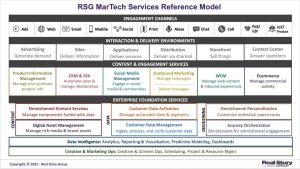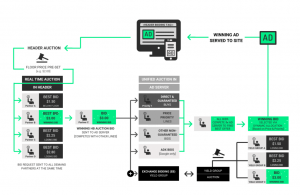Is there anything prettier than a well-merchandised display of bed and bath linens? I mean, what can beat the crisp, pretty sheets in their perfect little packages arranged by designer, colour, size and thread count. It’s all about potential. For just a few minutes you can imagine that your bedroom will look like something in Dwell instead of a depressing mix of unmatched sheets and dog hair.
But once sucked in by the perfect packages and the visions of my Ralph Lauren artichoke-inspired retreat (apparently this is what bedrooms are called now), things start to slip a little. Do I want percale or sateen? Is full size the same as double? Is that some mysterious European mattress size? Do the kids have single beds or twins? What the hell is a California King bed? I thought California Kings were seals or hockey players or something like that. And then there’s the thread count. Did you know that thread count is bullshit?
Well it is. Thread count is the number of threads per square inch of fabric. Using normal sheet-making methods and ingredients should let you get about 300 threads into a square inch. But some bored product marketer hit on the idea that if 300 is good, 600 must be twice as good and 1,000 must be something you can charge a bunch of money for. It turns out that the more threads in your sheets has nothing to do with how long they will last, how well they are made or how nice they will feel. Indeed, many manufacturers play all kinds of games to get to claim the four-digit  thread counts they are fleecing you for.
thread counts they are fleecing you for.
This is a great example of marketers, lacking anything meaningful to use to differentiate from the competition by Making Stuff Up. Like thread count. Egyptian cotton, it turns out, does not come from Egypt. It’s the type of seed they use to grow cotton and almost none of the cotton we buy comes from Egypt. In fact, many of our sheets are made in appalling conditions in places nowhere near Egypt or Ralph Lauren. Also, just in case you were wondering, many of them also spray a softening agent on the sheets so they feel softer in the store than after their first wash. If you have just parted with a boat load of money to take home some 1,200 thread count Egyptian cotton sheets, I apologize.
Want to know what else is bullshit? Diamonds. Back in the Great Depression poor old DeBeers diamonds was having a tough go of things, what with nobody having any money, so they came up with a brilliant idea. Create in customers’ minds the notion that diamonds are a) very rare b)an appreciating asset c)table stakes for popping the question.
Eighty years later, it’s still working. Diamonds aren’t particularly rare but the supply is tightly managed by the handful of companies who mine them (DeBeers accounts for about 75% of the production), so the price stays artificially high. Diamonds don’t appreciate in value, at least the ones most of us can afford, indeed, you will get a very small fraction of what you paid if you were to try to sell the average engagement ring back to a jeweller. How we ever fell for the idea that men had better show up with a pretty stone on a shiny ring to be considered for marriage is beyond me. Yet a casual search of “engagement ring” will quickly show that we continue to tell men they should part with two or three months’ salary if they expect to land the object of their affections. Why two months? Marketing Made Stuff Up.
The market is full of examples of Made Up Stuff. The health benefits of vitamin supplements, the notion that anything called Froot Loops Marshmallow is good for children and basically any marketing with a footnote suggesting Individual Results May Vary, are all examples of what we can do when we Make Stuff Up.
I’m not going to insult you, friends, by lecturing you about why it’s a bad idea to Make Stuff Up; rather, I’m going to suggest that Making Stuff Up is actually an opportunity.
Take a look around your industry. Are there accepted “truths” that are actually Made Up Stuff? I’ll bet there are, and I think there’s some terrific opportunities for savvy marketers to seize not only some moral high ground (a thing we could all use a bit of, let’s face it) but also some market share and earned media.
For example, Boll and Branch has basically called bullshit on the entire linen industry and stepped out with marketing around debunking thread count as a measure of anything helpful. By changing the conversation from pretend metrics to how good sheets are made (the company has a Fair Trade supply chain) they completely obviate much larger players who are still counting threads. It doesn’t hurt that they have also put the pricing models on notice and manage to sell at a substantial discount.
I don’t know if there is a Friends of Lesser Gems, but if I were marketing against diamonds, I’d be positioning sapphires and emeralds as a way to afford a knock-out ring and a nice dinner to go along with it. Plus still being able to pay your rent.
If I were on the precious metals end of it, I’d totally talk about the disgraceful path that most gems take from the hole in the ground to the local jeweler, and suggest a stylish metal-only creation as a modern, conflict-free alternative.
Some people see steaming piles of horseshit; I see mountains of opportunity. Who’s with me?
Interesting Things I Found This Week
Speaking of changing the conversation. Snickers has long occupied a marvelous spot where the Made Up Stuff about a chocolate bar being a real snack is wrapped up in well-written, well-acted bits on how we act when we’re hungry. Stealing a page from Coke’s personalized packaging, here is a their fun new campaign.
Oh dear. This is what happens when a very big company, in this case Unilever, calls BS on a very small company and then the egg lobby (seriously, there is an egg lobby) to go all Tony Soprano on poor old Whole Foods. You just can’t make this stuff up. Nice write up by Fast Company.
Business & Finance Articles on Business 2 Community(107)
Report Post




